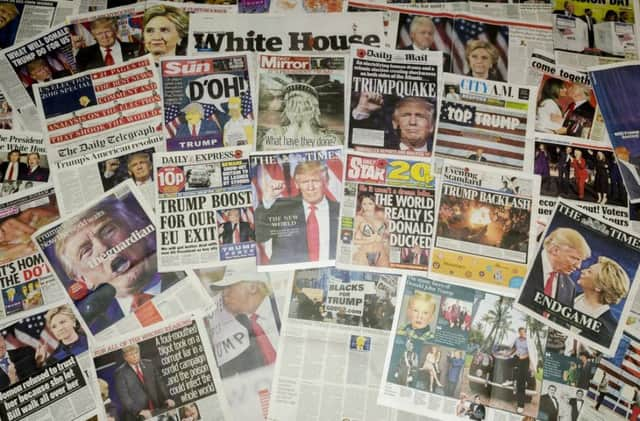NMA: Section 40 Would Cost Press Industry £100 Million a Year


Submitting its response to the Department for Culture, Media and Sport’s consultation on press regulation, the NMA said Section 40 of the Crime and Courts Act 2013 was an unfair and undemocratic attack on free speech which would have a chilling effect on newspapers’ ability to report on matters of public interest.
If enacted, the draconian legislation - which has been condemned by global free speech organisations, campaigners, as well as local, national and regional newspaper editors - would mean that newspapers outside of the state-recognised system of regulation would be forced to pay the costs of claimants in legal actions even if the newspaper was found by a court to have told the truth.
Advertisement
Advertisement
NMA chairman Ashley Highfield said: “Section 40 is designed to force newspapers into a system of state-backed regulation which the industry views as entirely unacceptable and incompatible with the principles of free speech.
“Not a single significant publication has signed up to Impress, the state-recognised regulator funded by one wealthy donor, with the vast majority of the industry choosing instead the new tough self-regulatory regime under IPSO which is independent of the industry and completely free from state control.
“Section 40 would have a hugely negative impact upon the press industry both here in the UK and overseas. Newspaper titles would be forced to close and our democracy would be poorer for it. This harmful legislation must be repealed immediately.”
The Leveson Report recommended a system of “voluntary independent self-regulation,” envisaging “a body, established and organised by the industry” which “must be funded by its members”. Lord Justice Leveson said it should include all the major players in the industry – national newspapers and as many regional and local newspaper and magazine publishers as possible - “although I am very anxious that it remain voluntary”.
Advertisement
Advertisement
As part of its submission, the NMA said Impress was “not a genuine regulator” and appeared to have been set up purely as a device to trigger the Section 40 costs sanctions against the press.
The Impress chief executive, a number of its Board members, the chair of its code committee, and even members of the appointment panel which selected the Impress Board, had made clear their profound dislike of some of Britain’s most popular newspapers, with repeated public attacks – some of them personally abusive – supporting advertising boycotts on these titles, and even calling for them to be banned from sale or closed down, the NMA added.
As part of its response, the NMA also said that the Leveson Inquiry should not be reopened because of the changes that have occurred within the press industry and the numerous police and press reviews since the publication of the report over four years ago and the huge cost to the public purse of reopening the inquiry.
In 2012, Lord Justice Leveson himself released a statement questioning the value to be gained from a Part 2, given the “enormous cost,” the fact that material would be years out of date by then, and that it could take even longer than the first inquiry.
Advertisement
Advertisement
A recent YouGov poll found that there is no public appetite for the second part of the Leveson Inquiry with just one per cent of people believing press regulation should be among the Government’s priorities at the current time.